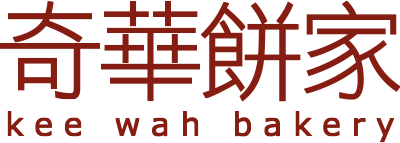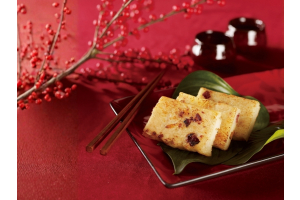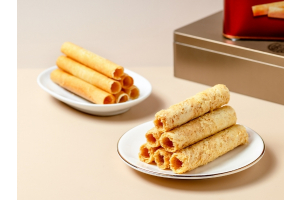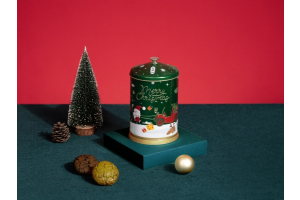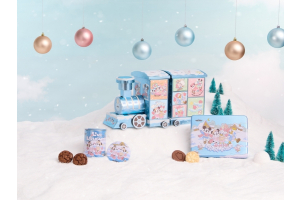A Comprehensive Guide of the Return Tea Gift Tradition, Timing, Taboos, and Key Points
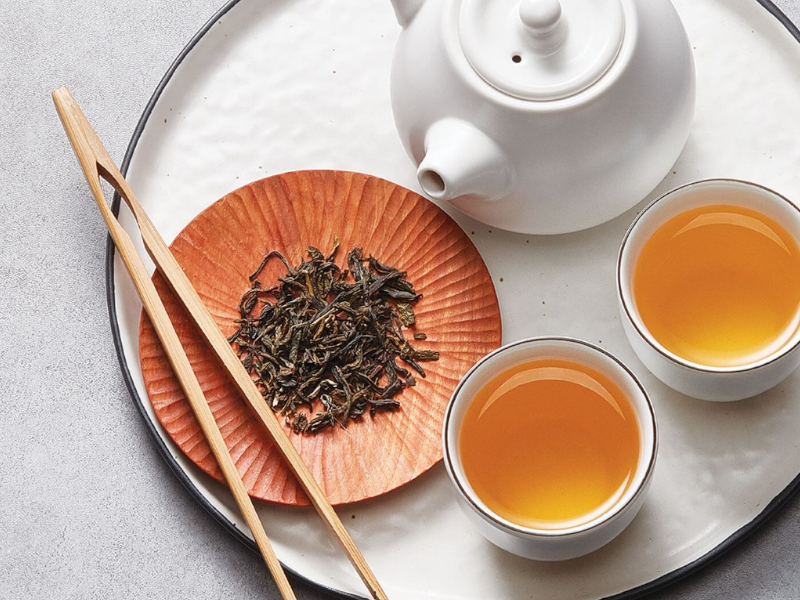
In traditional Chinese weddings, once the groom’s family completes the Guo Da Li (betrothal gift ceremony), the bride’s family is expected to reciprocate. This act of returning a gift, known as the “return tea gift,” not only reflects the value of mutual respect but also symbolizes the bride’s family's agreement to the union. In this article, we’ll walk through the significance, timing, suitable tea selections, taboos, and key considerations of the return tea gift tradition, making it easier for couples to honor this important custom.
What Is a Return Tea Gift?
Historically, tea has always been a core part of the wedding betrothal process. In ancient China, tea was a mandatory component of the groom’s gift—thus the term cha lai (tea gift). Ming Dynasty scholar Lang Ying mentioned in his work Qi Xiu Lei Gao that tea trees can only be grown from seeds, not transplants, symbolizing a marriage that, once formed, cannot be undone. The tea also implied that a bride, once married, would remain faithful and devoted for life.
Using tea in this way expressed the elders’ reverence for marriage and conveyed best wishes for the couple’s lifelong union. The return tea gift continues this symbolism from the bride’s family to the groom’s.
When Is the Return Tea Gift Given?
Typically, the return gift is prepared right after the Guo Da Li, usually on the same day or the following day, about one to two months before the wedding. The bride’s family returns approximately half of the items received, including a selection of tea, as a token of goodwill and reciprocity.
Suggested Return Tea Gift Items
Here are some commonly included items in the return tea gift set:
- At least 2 tins of tea (even number only) – Symbolizing steadfast love. Popular choices include Po Li, Longjing, Jasmine (Heung Pin), and Bi Luo Chun.
- A pair of 「囍」 lotus roots – Symbolizing a stable, rooted union.
- A pair of pomegranates – Representing fertility and the continuation of the family line.
- A pair of tangerines (Four Seasons oranges) – For prosperity and good fortune.
- A pair of taro roots – Symbolizing growing wealth and abundance.
- A pair of Chinese celery (羌) – Wishing both offspring and fortune.
- Fresh cypress – Believed to ward off negativity and bring good luck.
- Fresh hibiscus – Symbolizing a blissful marriage.
- Fresh pomelo leaves – Representing lasting youth and vitality.
- 1 large 「囍」 prosperity bun
- 8 red envelopes with the 「囍」 symbol
- 8 sesame balls (Jin Dui) – Symbolizing wealth rolling in.
- 8 steamed sponge cakes (Sung Go) – Wishing continuous growth and success.
Tea Selection for Return Tea Gift
When selecting tea for the return gift, opt for teas with positive symbolic meanings:
- Po Li– Ages well and deepens in flavor, representing a stable, lasting marriage.
- Longjing (Dragon Well) – “Dragon and Phoenix” symbolism denotes a perfect match.
- Jasmine (Heung Pin) – Represents continuity of the family line.
- Ti Kuan Yin – Refers to Kuan Yin’s divine matchmaking blessings, ensuring a harmonious relationship.
- Bi Luo Chun – The tea’s spiral shape symbolizes deep, intertwined affection between the couple.
Kee Wah Bakery offers a refined range of teas perfect for such auspicious occasions. Elegantly packaged in tin canisters with classic Chinese calligraphy design, these teas are thoughtfully curated for betrothal and return gifts, balancing cultural tradition with visual sophistication.
Price: $62–68 per small tin; $100–108 per large tin. Purchase here
Return Tea Gift Taboos & Key Considerations
- Avoid Using Tea Bags
Tea bags are considered too casual and symbolically “thin” or insubstantial. They are not appropriate for such a formal exchange. Opt instead for whole loose-leaf tea or tea cakes for a more traditional and respectful presentation.
- All Quantities Must Be in Pairs
Everything from tea to pastries should be given in even numbers—2, 4, or 6—never odd. This reflects the auspicious symbolism of pairs (“a perfect match”) in Chinese tradition. Use red or gold festive packaging, or present the items in a decorated basket to elevate the celebratory mood.
- Never Return the Tea
Returning the tea from the groom’s gift is equivalent to rejecting the marriage. Therefore, it’s advisable for the bride’s family to set aside separate tea tins specifically for the return gift. Tea received from the groom should be reserved for use in the wedding tea ceremony itself.
The return tea gift is a vital aspect of Chinese wedding customs. By following the principles of “even numbers for good luck, festive presentation, and respecting taboos,” couples can ensure that this act of reciprocity is both meaningful and harmonious—paving the way for a joyful, successful union.
